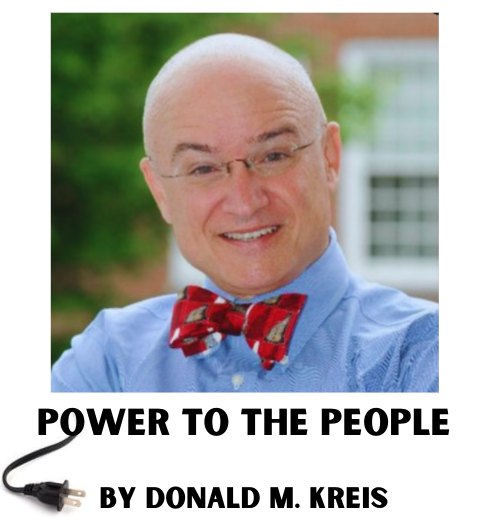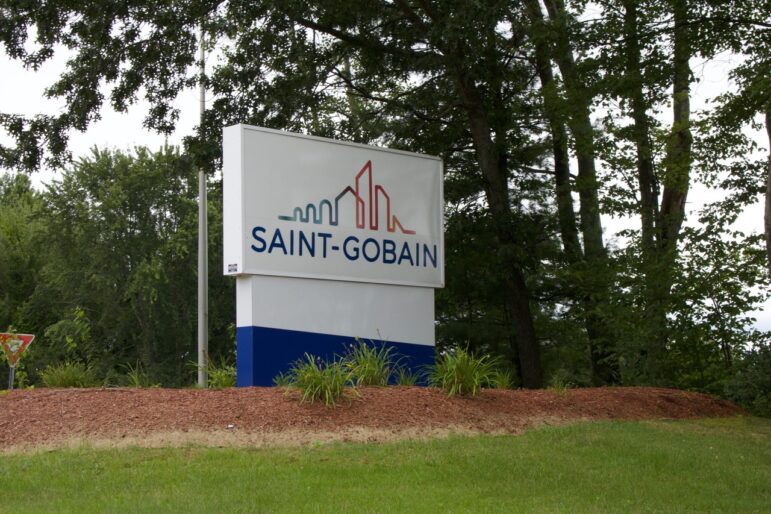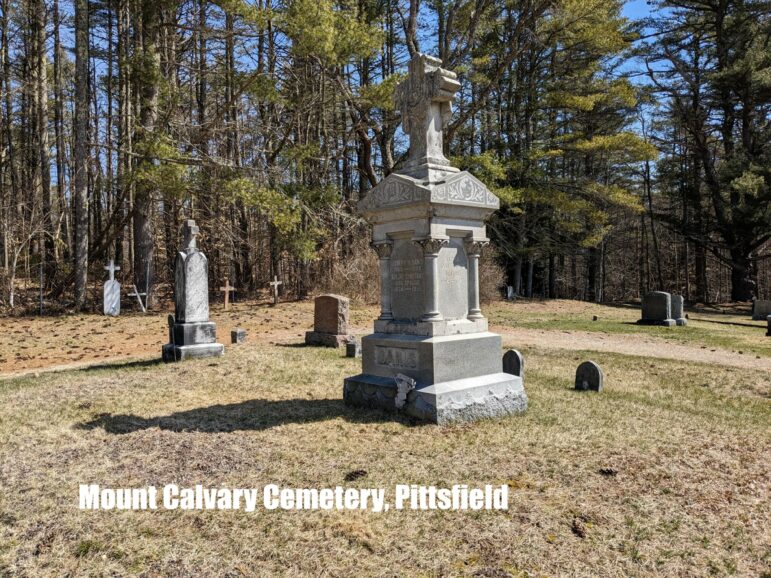Power to the People is a column by Donald M. Kreis, New Hampshire’s Consumer Advocate. Kreis and his staff of four represent the interests of residential utility customers before the NH Public Utilities Commission and elsewhere.
By Donald M. Kreis, Power to the People
“Energy justice requires that equity be part of energy policy.” So, declares Shalanda H. Baker, a professor of law, public policy and urban affairs at Northeastern University, in her 2021 book Revolutionary Power.
What does Baker mean by “energy justice” and “equity”?
“No single aspect of the energy system, writ large, has been designed to benefit poor people, people of color, or Indigenous communities,” Baker declares. “It therefore follows that, without a fight, even the policy mechanisms designed to avert catastrophic climate change will undoubtedly operate to harm our communities.”
There is no doubt about which communities Baker is seeking to represent. Page 1 of her book describes her childhood in Texas, which led her to the United States Air Force Academy. There she was “a Black, queer, young woman discovering her sexuality during the height of ‘Don’t Ask, Don’t Tell.’”
Eventually Baker went to law school, entered and then ditched the practice of corporate law, and spent a year working with the Indigenous people of Oaxaca, Mexico. She became a law professor and launched an energy justice program in Hawaii – where, she writes, “its people had power” before their land’s “conquest and unlawful annexation to the United States.”
Good grief, is that not me. Sure, I am New Hampshire’s Consumer Advocate, representing the interests of residential ratepayers, who writes a column whose title resonates with the one Baker used for her book. But I was a privileged white kid, raised in the New York suburbs, whose love of Mozart, oddly enough, is how I started down the path to energy regulation.
In 1984, I left the megalopolis behind and have been living in either New Hampshire, Maine, or Vermont ever since. Did I flee northward in quest of homogeneity and to avoid what are, in the present context, often called “energy justice communities”? Not knowingly.
Today I see energy justice communities, and energy injustice, all around me. So I was grateful to discover Baker’s book via the Energy Justice Clinic recently founded by two members of the Anthropology Department at Dartmouth College – Assistant Professor Maron Greenleaf and Postdoctoral Scholar Sarah Kelly.
Here’s what is fabulous about what Greenleaf, Kelly, and their students are up to. They are exploring and exposing the connections between our on-the-ground energy challenges in New Hampshire to those found thousands of miles from here.
Some of the Dartmouth students have been working in Chile, on a dispute that pits today’s energy needs against ancestral territorial rights. Others are exploring community power aggregation as it is emerging in New Hampshire, hopefully delivering real benefits of electric industry restructuring to everyone in the participating cities and towns.
Energy justice scholars like Baker, Greenleaf, and Kelly avowedly pursue four goals.
First is distributive justice, by which they mean the benefits and burdens of our energy systems being allocated equitably. Second is procedural justice, so that – whether it’s a courtroom in Futawillimapu, Chile or a hearing at the Public Utilities Commission in Concord – everyone who cares about the outcome believes they are truly heard.
The third objective is recognition justice. Baker describes that as “acknowledgement and respect for all peoples.” Finally, there is restorative justice – righting past wrongs.
What are examples of past wrongs? For me, it’s the hundreds of millions of dollars in stranded costs paid by Granite Staters for a mercury scrubber at a generator in Bow that is still burning coal – the last place in New England to do that. For Baker, it’s places like her father’s hometown of Port Arthur, Texas, where some census tracts are nearly 80 percent African American.
Port Arthur hosts the nation’s biggest oil refinery as well as elevated cancer rates among its residents. According to Baker, the Environmental Protection Agency ranks Port Arthur “as among the worst in the country for toxic chemical emissions.”
Connecting what happens in Port Arthur to what happens in Portsmouth or Seabrook or Colebrook, in quest of a good future for all – this is why energy justice is important in 2022. But that’s not to say Baker is entirely correct in her proposed remedies.
Baker places net metering at the top of her list of solutions, arguing that energy justice requires those with solar panels on their roofs be paid the full retail price of any electricity fed back into the grid. She abhors a system that would value net metered electricity the same as the megawatts pouring out of Merrimack Station in Bow.
It’s a false, all-or-nothing choice. No one who produces a wholesale product, be it organic produce or rooftop solar electricity, should expect to be paid the full retail price for it. But just like the raspberries your neighbor grows are more valuable than the ones I just ate from California, so is rooftop solar more valuable than what distant mega-generators produce with fossil fuels.
Baker’s book contains only one mention of energy efficiency, and it’s just a glancing one. In my view, energy efficiency is a better foundation for energy justice than net metering. No one is more deserving of a fully weatherized, cozy, comfortable home than a poor family that lives with a staggering energy burden.
Revolutionary Power calls for converting investor-owned utilities to publicly owned entities. Nearby in Maine, the investor-owned utilities are fighting every inch of the way against a referendum effort to do just that. No person – especially not a so-called corporate person – wants to suffer the death penalty.
This short and eminently readable book is at its best when it calls for truly do-able energy justice solutions like community solar projects, community power aggregation, and on-bill financing of home energy initiatives. Everyone regardless of credit rating should be able to borrow money to make their home energy efficient and remit the monthly payment via their utility bill, out of the net energy savings.
“Energy policy should be the domain where we fight for the next generation of civil rights,” contends Baker. I may be a Mozart fan-boy, ill-qualified to opine. But I am pretty sure Baker is right – as is Dartmouth for pursuing its important energy justice initiative.





